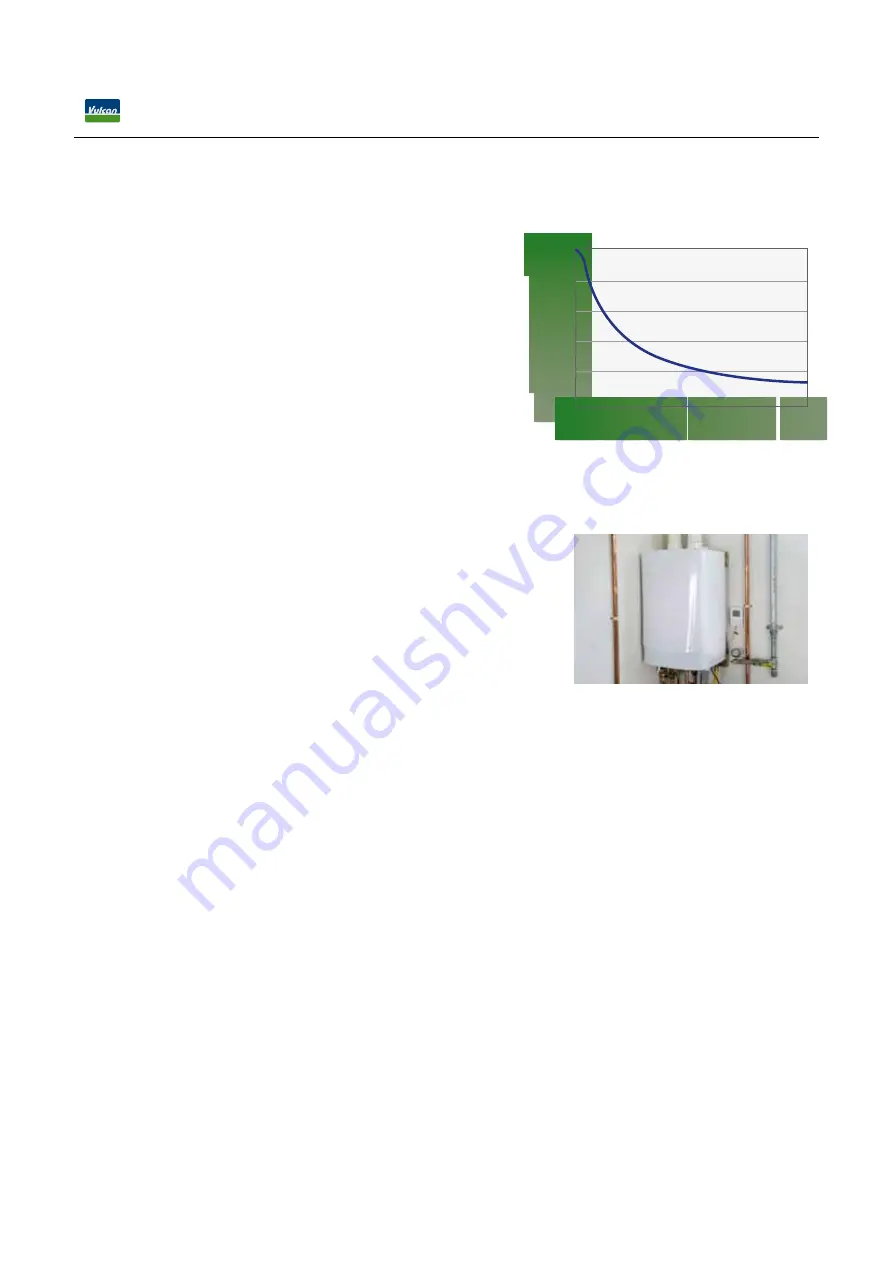
32
10. Vulcan and its Effect on Machinery and Equipment
10.1 Heating and Heat Exchangers
When water is heated, scale settles on the heating elements and
heat exchangers. This happens in oil, gas, electric or solar heating
technologies alike. The loss of energy due to the less efficient or blocked
heat transfer is tremendous and the heat transmission coefficient
decreases. Vulcan helps to reduce the scaling, and water tanks in the
primary and secondary circuits will need less cleaning. The frequency
of cleaning periods can be extended. Vulcan is effective on all types of
exchangers: tube bundle heat exchangers, spiral tube heat exchangers,
plate heat exchangers, ripped recuperators, etc.
Background knowledge on water heating systems
Water heater in private houses and buildings
Regulations for water temperature in houses or buildings state that the
warm water pipes shall not carry water hotter than 64°C (147°F). Any
temperature above this point would create a risk of serious skin burn.
Furthermore, the water should be heated to meet a minimum of 60°C
(140°F) to control legionella.
Therefore: water is normally heated to 60°-64°C (140°-147°F).
a) Standard water heaters: electric, gas, oil (with a tank)
Standard water heaters operate with a heating element temperature
anywhere from 65°C (149°F) in order to reach the water temperature
of min. 60° (147°F) and max. 64°C (147°F). The water is slowly and
economically heated in a tank where the water is stored for usage.
Often heating element peak temperatures range around 85°C (185°F).
b) On-demand (instant) water heaters: electric, gas, oil
On-demand water heaters do not have a tank. They quickly heat the
water from cold water to warm/hot the moment warm water is needed.
The cold water needs to be heated within a few seconds which demands
higher heating element temperatures. These instant water heaters may
operate with higher heating element temperatures than 95°C (203°F).
c) Under 95°C (203°F) – the Vulcan effect in your water heater
The general rule for water heater systems is: if the heating element
surface temperature is less than 95°C (203°F), you will see very good
results with the Vulcan water treatment.
10. Vulcan and its Effect on Machinery and Equipment
Limescale deposit in mm
Decrease of efficiency
due to scale deposit
Heat transmission
On-demand heater
















































